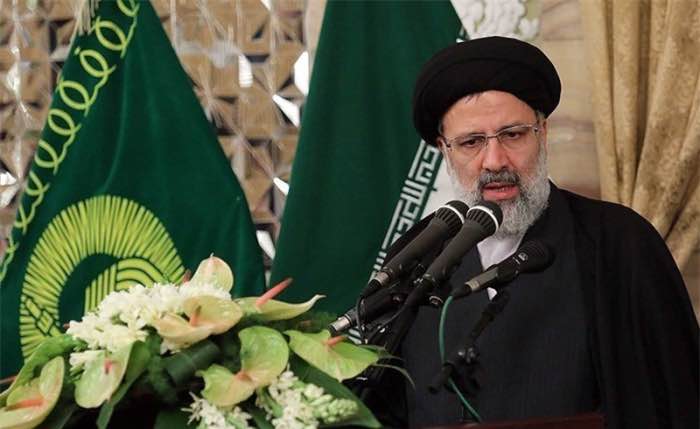Moments after the much-anticipated announcement was made in Iran’s capital on Saturday that Judiciary Chief Ebrahim Raisi had won the presidential election, Israel issued grave concerns highlighting the low voter turnout in the poll and calling to attention the past of the hardliner president-elect. From Israel Foreign Minister Yair Lapid to the spokesperson of the ministry Lior Haiat called Ebrahim Raisi the ‘Butcher of Iran’ for his alleged role in the mass execution of thousands of people in the 1980s, 2009 and 2019, and warned the world of his extremist views and commitment to nuclear and ballistic missile programme which could endanger the international community.
Voter turn out significantly lower than 2017 election
The voter turnout indeed was way lower than in the last presidential election in 2017 when President Hassan Rouhani was re-elected by a wide margin. This year only 28.9 million ballots were cast, while in 2017 over 41 million people came out to vote. And even though Ebrahim Raisi garnered 18 million votes, almost 3.7 million white ballots were cast without any name of the candidates in the fray, which meant a large number of voters showed no enthusiasm in the elections deciding to stay home while some stepped out to show their disenchantment casting white ballots.
The election took place in the backdrop of a social media campaign with the hashtag ‘There is no way I will vote’ in the run-up to the election with people listing out their demands which centred around the need to bring fundamental changes to Iran’s democratic system.
People’s anger deepened further after several prominent presidential candidates were disqualified by the country’s Guardian Council: a group of unelected people that gives a go-ahead to the candidates. The council in the end barred many moderate and reformist candidates from contesting the polls, paving the way for Ebrahim Raisi, one of the tested protégés of Iran’s Supreme Leader Ayatollah Khamenei. Thus many, including Israel, are calling it a stage-managed election in Iran.
Khamenei cleared hurdles for Raisi after 2017 defeat?
Notably, Ebrahim Raisi contested the presidential poll in 2017 also, but riding on his popularity President Hassan Rouhani returned to power for the second time – only two terms are allowed in Iran – decimating him by over 6.3 million votes.
But this time, Ayatollah Khamenei reportedly cleared all roadblocks ensuring that his loyalist becomes the next President of Iran and carries forward his conservative legacy in the country.
60-year-old Ebrahim Raisi is known for his ultraconservative ideologies and his association with Iran’s Supreme Leader goes back to the 1980s. Khamenei is believed to have taken Raisi under his wings soon after he joined the judiciary in 1981. The same year Khamenei had become the president of Iran. That was two years after the Islamic Revolution in Iran which brought clerical leaders to power in the country.
Why Israel calls Ebrahim Raisi ‘Butcher of Iran’
Soon after, in 1988, Raisi became one of the four members of the ‘death committee’ which allegedly sentenced as many as 3,000 men and women to death, eliminating the jailed members of the leftist opposition group Mujahedin-e Khalq (MEK). While human rights group Amnesty International claims around 5,000 people were killed by the order of the death committee, the spokesperson of the Israeli Foreign Ministry, Lior Haiat, in his tweet said that over 30,000 people were slaughtered in the Iranian jails.
Iran’s next President is sanctioned by US and EU
Interestingly, the man who is going to take charge as the next President of Iran in the month of August has been long sanctioned by both the United States and the European Union over his human rights record.
The United States, under Donald Trump, sanctioned Raisi in November 2019 after the Iranian government’s crackdown on the protests against a rise in gas prices. According to the rights group, over 7,000 protesters were arrested and tortured before being sent into prisons by the judiciary.
The US administration accused Ebrahim Raisi of denial of a probe into the shootings of hundreds of peaceful protestors as the Chief Justice of Iran. Ayatollah Khamenei had named him to the head of the judiciary in March 2019. The American order further mentioned that Raisi was also involved in the brutal crackdown on Iran’s Green Movement protests which followed the 2009 presidential election.
Raisi to succeed as Iran’s Supreme Leader after Khamenei?
Ebrahim Raisi is considered to be the most likely successor to 82-year-old Ayatollah Khamenei. His election to the post of the president could be the stepping stone for his ascension to the top job.
While president-elect Raisi has promised to strengthen public trust in the government and become a leader for the entire nation, his opponents believe he may gradually push forward his ultraconservative viewpoints mounting oppression on the moderates and reformists, limiting the rights of people in the country.









Trump vs Harvard: US President threatens to tax University as ‘political entity’
Trump’s 50% China tariffs ultimatum: Stock market crash & economic risk explained
Donald Trump reciprocal tariffs hit India, global trade faces turmoil